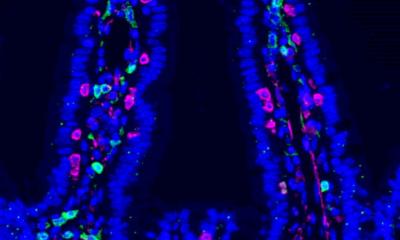Cancer patients are not informed enough
Two thirds of cancer patients receive little or no information about the survival benefits of having palliative chemotherapy before making a decision about treatment, according to a study published on the British Medical Journal website.

Palliative chemotherapy for patients with advanced cancer has modest survival benefits and there is an expectation in the UK that such patients should be given accurate information so they can give informed consent before starting chemotherapy.
At the advanced stages of cancer, survival gain from palliative chemotherapy treatment tends to be months rather than years.
A study by researchers from the University of Bristol, however, found that in more than two thirds of cases, patients were not given information about the survival benefits of such treatment.
The study, which was funded by Cancer Research UK, was carried out at a large teaching hospital and a district general hospital in the south west of England where 37 patients' cases were considered.
Consultations with oncologists were digitally recorded with each patient, all of whom had advanced forms of cancer. Three common cancers were chosen – colorectal, non-small cell lung, and pancreatic cancer.
The researchers used data from a study of patients' of experiences treatments (ASPECTS) to examine the extent to which survival gain was discussed when patients were offered palliative chemotherapy.
A researcher interviewed each patient before they saw the oncologist, recorded the consultation with the health professional, and then interviewed the patient again within weeks.
During the consultations, there was consistency in informing patients that a cure was not being sought for them, but the amount of information about survival benefit varied considerably.
Information given to patients about survival benefit included: numerical data ("about four weeks"); an idea of timescales ("a few months extra"); vague references ("buy you some time"); or no mention at all.
Only six patients out of 37 were given numerical data about the survival benefits of treatment.
For the majority of consultations observed (26 out of 37), discussion of survival benefit with patients was vague or it was not mentioned at all.
The researchers say there are concerns that the "intrusiveness of unfavourable numbers", in terms of months left to live, can undermine healthcare relationships and destroy hope.
They say: "Giving comprehensible and appropriate information about survival benefit is extremely difficult. In addition, the reluctance to inform patients of the limited survival gain of palliative chemotherapy may be motivated by a desire to 'protect' patients from bad news.
"However, the reluctance to address these difficulties and sensitivities may be hampering patients' ability to make informed decisions about their future treatment."
The researchers say oncologists and cancer teams have to communicate sufficient information to enable patients to make informed decisions based on realistic aspirations, but to do so in a sensitive manner and at the patient's pace.
They also recommend that oncologists receive training in how to communicate relevant information on survival benefits to their patients.
National updated information is needed about the prognosis of advanced cancer and the benefits of palliative chemotherapy as well as decision aids to help patients interpret information, say Daniel Munday and Jane Maher in an accompanying editorial.
This article is adapted, from the original press release
Image source: aboutpixel.de © Peter Ehmann
28.08.2008





